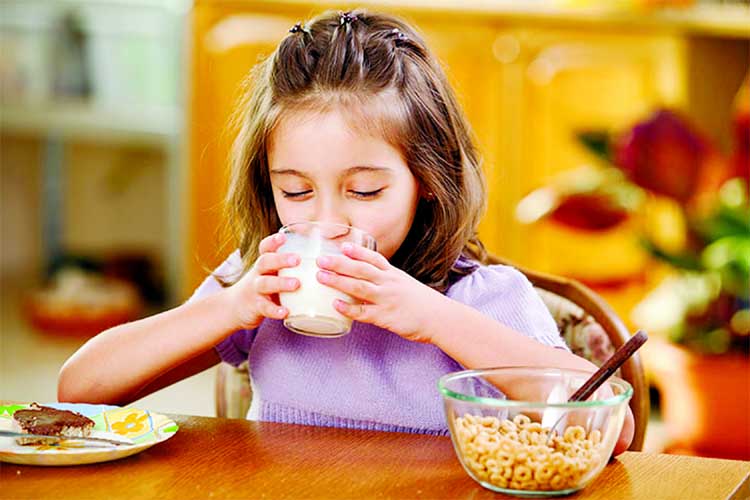
Weekend Plus DeskMilk is often considered as a complete diet, especially for those who are vegetarians. It occupies a special place in Ayurveda for its nutritional and digestive properties. Loaded with protein, vitamin A, B1, B2, B12, and D, as well as potassium and magnesium, it is one of the most nutritious health drinks one can have. However, very few adults would happily have a glass at one go, forget kids!
Dr Rinki Kumari, chief dietician at Fortis Hospital, Bangalore says, “Adults should not avoid consuming milk as it works as an excellent night time drink. Milk contains Tryptophan, an amino acid that induces sleep in the individual and improves the quality of sleep. This occurs because Tryptophan helps the body to create more serotonin and melatonin, two neurotransmitters that control the body’s sleeping cycle. Not just that, people suffering from insomnia can also benefit from drinking milk as the calcium and magnesium present in it help alleviate sleep insomnia.”
For kids, gulping down a whole glass of milk during breakfast may seem like a good idea, but well into adulthood, the digestive system is not prepared to handle it. It burdens the digestive system in the morning and often will show in the form of heartburn or gastrointestinal issues in the long term. It is advisable to always have milk with cereals or in the form of porridge.
Also, it is often seen that when it comes to milk consumption, parents tend to overdo it. Dr Kumari sheds light on this myth too. “For kids, two cups of milk, one in the morning and the other before falling asleep is sufficient, not more, not less. This is because most parents make their kids overdose on milk hoping that their bone development is progressing at a healthy rate, but too much milk will end up leaving kids with severe iron deficiencies,” she says.
While kids are advised to have milk regularly, it is also recommended that women should include it in their diet, especially after menopause. “Milk consumption after menopause helps in reducing the risk of osteoporosis, a life-threatening bone disease that occurs primarily among women over the age of 50. It provides the necessary proteins, calcium and vitamin D required for improving bone density which counteracts the ‘porous bones’ condition that is a symptom of osteoporosis,” says Kumari. n
Dr Rinki Kumari, chief dietician at Fortis Hospital, Bangalore says, “Adults should not avoid consuming milk as it works as an excellent night time drink. Milk contains Tryptophan, an amino acid that induces sleep in the individual and improves the quality of sleep. This occurs because Tryptophan helps the body to create more serotonin and melatonin, two neurotransmitters that control the body’s sleeping cycle. Not just that, people suffering from insomnia can also benefit from drinking milk as the calcium and magnesium present in it help alleviate sleep insomnia.”
For kids, gulping down a whole glass of milk during breakfast may seem like a good idea, but well into adulthood, the digestive system is not prepared to handle it. It burdens the digestive system in the morning and often will show in the form of heartburn or gastrointestinal issues in the long term. It is advisable to always have milk with cereals or in the form of porridge.
Also, it is often seen that when it comes to milk consumption, parents tend to overdo it. Dr Kumari sheds light on this myth too. “For kids, two cups of milk, one in the morning and the other before falling asleep is sufficient, not more, not less. This is because most parents make their kids overdose on milk hoping that their bone development is progressing at a healthy rate, but too much milk will end up leaving kids with severe iron deficiencies,” she says.
While kids are advised to have milk regularly, it is also recommended that women should include it in their diet, especially after menopause. “Milk consumption after menopause helps in reducing the risk of osteoporosis, a life-threatening bone disease that occurs primarily among women over the age of 50. It provides the necessary proteins, calcium and vitamin D required for improving bone density which counteracts the ‘porous bones’ condition that is a symptom of osteoporosis,” says Kumari. n

